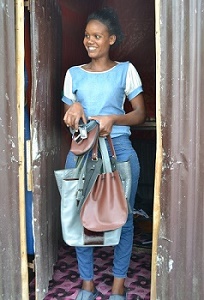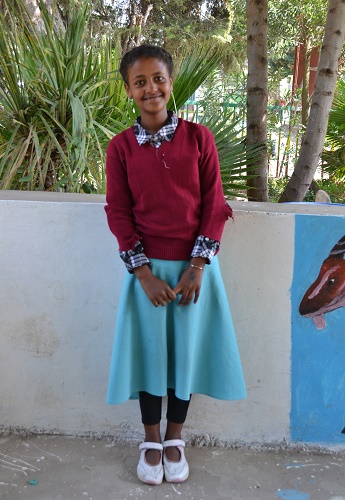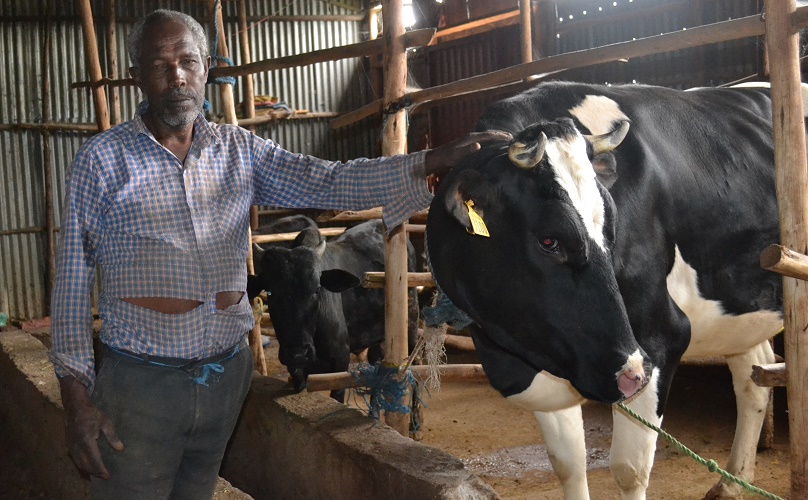 When Meaza completed Grade 10 two years ago, she was one of 100 at-risk youth who were selected for the EDA Youth Livelihood program. She was given vocational training in leather work, small business skills and business and personal finance. Meaza used her $750 US seed funding to purchase a leather sewing machine and supplies.
When Meaza completed Grade 10 two years ago, she was one of 100 at-risk youth who were selected for the EDA Youth Livelihood program. She was given vocational training in leather work, small business skills and business and personal finance. Meaza used her $750 US seed funding to purchase a leather sewing machine and supplies.
Meaza’s tiny shop has been open for seven months. She creates and sews high-quality, original leather purses, belts and cosmetic bags, which she sells to stores and handicraft shops. The business is already showing a small profit and Meaza is able to support herself and


 Before being supported by EDA, Almaz and her husband Kiflu were unable to feed themselves or their daughter. Almaz worked as a servant, and Kiflu was unemployed. They first came under the umbrella of EDA when their daughter was accepted into the family sponsorship program.
Before being supported by EDA, Almaz and her husband Kiflu were unable to feed themselves or their daughter. Almaz worked as a servant, and Kiflu was unemployed. They first came under the umbrella of EDA when their daughter was accepted into the family sponsorship program. Seven years ago, Shitaye was among the poorest of the poor in the Akika-Kaliti slum neighbourhood of Addis Ababa. She had no income, and she struggled to support herself and her disabled husband. Shitaye was accepted into a bio-gas cafeteria income generating program run by EDA. This innovative program addresses sanitation, environmental and nutrition needs, while providing women with employment. The facility includes public washrooms and showers and a small restaurant. The bio-gas captured from the toilets fuels the stoves in the restaurant.
Seven years ago, Shitaye was among the poorest of the poor in the Akika-Kaliti slum neighbourhood of Addis Ababa. She had no income, and she struggled to support herself and her disabled husband. Shitaye was accepted into a bio-gas cafeteria income generating program run by EDA. This innovative program addresses sanitation, environmental and nutrition needs, while providing women with employment. The facility includes public washrooms and showers and a small restaurant. The bio-gas captured from the toilets fuels the stoves in the restaurant. When Meaza completed Grade 10 two years ago, she was one of 100 at-risk youth who were selected for the EDA Youth Livelihood program. She was given vocational training in leather work, small business skills and business and personal finance. Meaza used her $750 US seed funding to purchase a leather sewing machine and supplies.
When Meaza completed Grade 10 two years ago, she was one of 100 at-risk youth who were selected for the EDA Youth Livelihood program. She was given vocational training in leather work, small business skills and business and personal finance. Meaza used her $750 US seed funding to purchase a leather sewing machine and supplies.